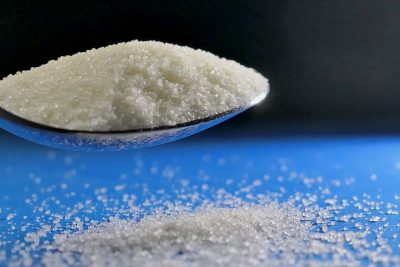
Pre-workout supplements are often designed to support energy, focus, and endurance during your training. Typically found in powder form, pre-workouts are a convenient way to add caffeine and other functional ingredients to make the most of your workout.
What’s In A Typical Pre-Workout?

Caffeine. Caffeine is a key ingredient in most pre-workout supplement. Caffeine supports focus and endurance. Depending on the pre-workout supplement, the amount of caffeine can range from 100-400mg. Keep in mind more is not always better and too much caffeine may cause nervousness, irritability, sleeplessness, and occasionally rapid heartbeat.
Beta Alanine. Beta Alanine is a non-essential amino acid that can be produced by the body and is also found in meat, poultry, and fish. Beta Alanine is a precursor to carnosine, a molecule that supports buffering acid in muscles in response to physical activity. Beta-alanine taken in large doses or by sensitive individuals may cause a temporary, harmless, tingling feeling called paresthesia.
Creatine. Creatine is one of the most well-researched and tested sports nutrition supplements. Creatine can support energy production by supporting ATP regeneration. Creatine may support power and performance when taken over time with regular resistance exercise.
B Vitamins. B Vitamins (B1 – Thiamin, B2 – Riboflavin, B3 – Niacin, B5 – Pantothenic Acid, B6 – Pyridoxine, B7 – Biotin, B9 – Folate, and B12 – Cobalamin) may be found in your pre-workout because B vitamins help convert the food you eat into cellular energy and support the breakdown and transport of nutrients.
Electrolytes. Electrolytes are essential minerals (Sodium, Potassium, Magnesium, and Chloride just to name a few) that are often consumed with water. Electrolytes may be found in your pre-workout to help replenish the minerals lost in sweat during prolonged physical activity.
When Should I take a Pre-Workout?
Pre-workouts are typically consumed 15-60 minutes before exercise. Be sure to read and follow the instructions carefully. It’s highly recommended that pre-workout is taken in moderation and it’s not recommended that it should be taken every day or for every workout. Generally we would only advise on taking it on days when you need an extra energy boost for a particularly tough workout session.
Pros And Cons of Pre-Workout
Pros of Taking Pre-Workout
Increased energy
Pre-workout supplements can help you feel more energized. This can be a great help if you need a boost to get you through a workout or sporting event.
Greater focus and concentration
A good pre-workout supplement can help you to feel more focused and increase concentration levels. This is essential if you want to train hard and improve your fitness and athletic ability.
Delayed fatigue
Fatigue is the one thing that hinders us from training harder and longer. Ingredients in pre-workouts, such as caffeine, can help to delay fatigue. Inevitably, training for harder and longer will increase our athletic ability
Improved athletic performance
Taking into consideration some of the benefits mentioned above, we are able to stay focused, and train harder and longer. The obvious side effect is that we will improve athletic ability and general wellbeing over a period of time. Obviously not all supplements will suit every athlete but pre-workouts are a great addition for those who want to give themselves an edge as they’re working towards the goal of getting fitter, faster, and stronger.
Cons of Pre-workout
Of course, nothing is perfect and there are also some cons associated with pre-workout supplements, including the following:
Possible side effects from ingredients like caffeine
The potential for side effects from ingredients like caffeine is one of the main concerns with taking any supplements. Some of the potential side effects include:
– Anxiety
– Restlessness
– Nervousness
– Increased Heart Rate
– Headache
– Dizziness
– Irritability
Not everyone will experience side effects from taking pre-workouts. However, it’s still important to be aware of any potential risks before taking any supplement. Always read the label.
Not all ingredients are supported with a great deal of research
While some of the ingredients in pre-workouts have been shown to be extremely effective, not all of them are backed by scientific evidence. For example, beta alanine is a common ingredient in pre-workout that has been shown to be effective.
However, other ingredients, such as L-Taurine, have not been proven to be effective and ‘may’ not provide any significant benefits. Before taking any pre-workout supplement, it’s important to do your research to make sure the ingredients are suited to you and your needs.
They can be expensive
Another downside of pre-workout supplements is that they can be expensive. Depending on the brand and ingredients, they can range wildly in price.
Increased heart rate and blood pressure
Some of the ingredients in pre-workouts, such as caffeine, can cause an increase in heart rate and blood pressure. If you have a history of high blood pressure or heart disease, it’s important to talk to your doctor before taking any pre-workout supplement. Again….. ALWAYS read the label.










